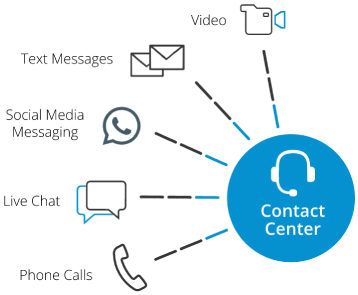In the complex and deeply interconnected ecosystem of enterprise communications, no Cloud-Based Contact Center (CCaaS) platform can exist as a self-sufficient island; its success is critically dependent on a sophisticated and multi-layered network of strategic partnerships and alliances. A deep analysis of Cloud-Based Contact Center Market Partnerships & Alliances reveals that these collaborations are not a secondary activity but a core part of the product and go-to-market strategy. These partnerships, which range from essential technical integrations with CRM systems to powerful sales channels through telecommunication companies and system integrators, are what transform a cloud phone system into a true, enterprise-grade customer engagement platform. The Cloud-Based Contact Center Market size is projected to grow USD 270.23 Billion by 2035, exhibiting a CAGR of 21.7% during the forecast period 2025-2030. To compete effectively for this growth, CCaaS vendors must be masters of ecosystem building, recognizing that their platform's value is exponentially amplified by the quality and breadth of its partnerships.
The most fundamental and non-negotiable partnerships for any CCaaS vendor are the deep technical integrations with the major Customer Relationship Management (CRM) platforms, with Salesforce being the most critical. In a modern contact center, the agent's workflow is centered around the CRM, which is the "single source of truth" for all customer data. A CCaaS platform must be able to seamlessly integrate with the CRM to be viable. This integration enables key features like "screen pops" (where a customer's CRM record automatically appears when they call), automatic logging of all calls and chats as activities in the CRM, and click-to-dial functionality from within the CRM interface. A CCaaS vendor with a robust, pre-built, and certified integration on the Salesforce AppExchange has a massive competitive advantage. It is a powerful signal of credibility and a key decision criterion for the thousands of businesses that run on Salesforce. The strength of these CRM partnerships is a primary battleground for the CCaaS vendors.
Beyond the vital CRM integrations, a host of other partnerships are crucial for delivering a complete solution and for reaching customers. Go-to-market partnerships with the major telecommunication companies (telcos) and master agents are a primary sales channel for many CCaaS providers. A telco like AT&T or Verizon will often partner with a leading CCaaS vendor and bundle their solution with its own network connectivity services, selling it as a complete package to its business customers. This gives the CCaaS vendor access to a massive and highly effective sales force. Technology partnerships with the major Unified Communications as a Service (UCaaS) platforms like Microsoft Teams and Zoom are also becoming increasingly essential. A deep integration allows a contact center agent to easily collaborate with a back-office expert or a manager on Teams to solve a customer's problem in real-time. Furthermore, the leading CCaaS platforms have built out their own "app store" marketplaces, fostering a rich ecosystem of third-party partners who build specialized applications (e.g., for workforce management or quality assurance) that extend the functionality of the core platform.
Top Trending Reports -
GCC Transportation Management Systems Market



